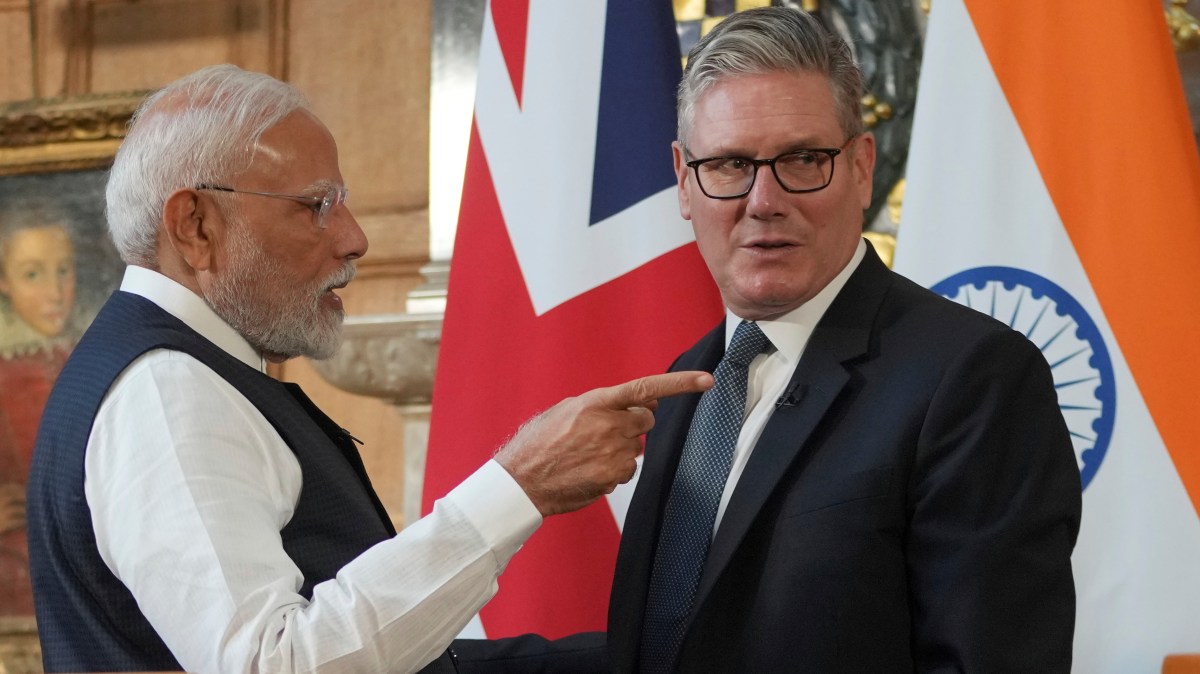Britain will make it easier for Indian professionals to come to the country on business trips, as Sir Keir Starmer signed a “historic” trade deal that he said would boost the economy by £4.8 billion.
The prime minister met his Indian counterpart, Narendra Modi, at Chequers to formally sign a deal that cuts tariffs on a range of British exports.
During the meeting with Modi, Starmer said that the agreement was the “biggest and most economically significant” since Brexit, praising a “historic day for both of our countries”.
Britain and India sign trade agreement

Modi said India and Britain were “natural partners”
KIN CHEUNG/GETTY IMAGES
“We’re sending a very powerful message that Britain is open for business, and that is already generating huge confidence,” he said, adding that the UK had “unique bonds of history, of family and of culture” with India that he wanted to build on.
However, he has faced criticism for agreeing to provisions that exempt Indian workers posted to Britain from paying national insurance.
Modi said that India and Britain were “natural partners”. He used a cricket metaphor drawn from England and India’s test match. He said: “There may be a swing and a miss at times, but we always play with a straight bat. We are committed to building a high-scoring, solid partnership.”
He also said that Britain would “benefit from India’s skilled talent”, saying that the deal would “inject new energy into the service sectors of both countries, especially in technology and finance”.
• Seema Shah: Don’t Tell Sid, but India looks a better bet than the UK economy
Scotch whisky exporters are among the biggest winners, seeing tariffs halved from 150 per cent to 75 per cent on sales in the world’s biggest market, and there are hopes of a further drop to 40 per cent. Car tariffs will also fall significantly, and there will be reductions for aerospace, lamb and confectionery. Average tariffs will drop from 15 per cent to 3 per cent.
Britain’s services companies have been promised equal treatment with Indian competitors while UK lawyers will find it easier to practise there. Britain has promised to “facilitate the temporary entry” of Indians in the services industry through making it easier to get visas.
The Conservatives have criticised a provision by which neither Britons nor Indians will pay national insurance if working in the other country, given that more come here than go the other way. Ministers insist that the provisions will have no impact on immigration.
Britain is also cutting tariffs on Indian food, textiles and generic medicines.
Impact assessments say that the deal will boost British GDP by 0.13 per cent, while India will have a boost half the size.
No 10 said: “The prime minister highlighted that UK consumers will benefit from lower prices and greater choice. The deal will see tariffs lowered so businesses can expand more easily in one of the fastest growing economies in the world.”
Starmer and Modi also discussed “closer collaboration on trade, defence, security, technology and education”.
Jonathan Reynolds, the business secretary, said that the deal “will deliver thousands of new jobs”, promising: “The billions brought to our economy from the trade deal signed today will reach all regions and nations of the UK.”
